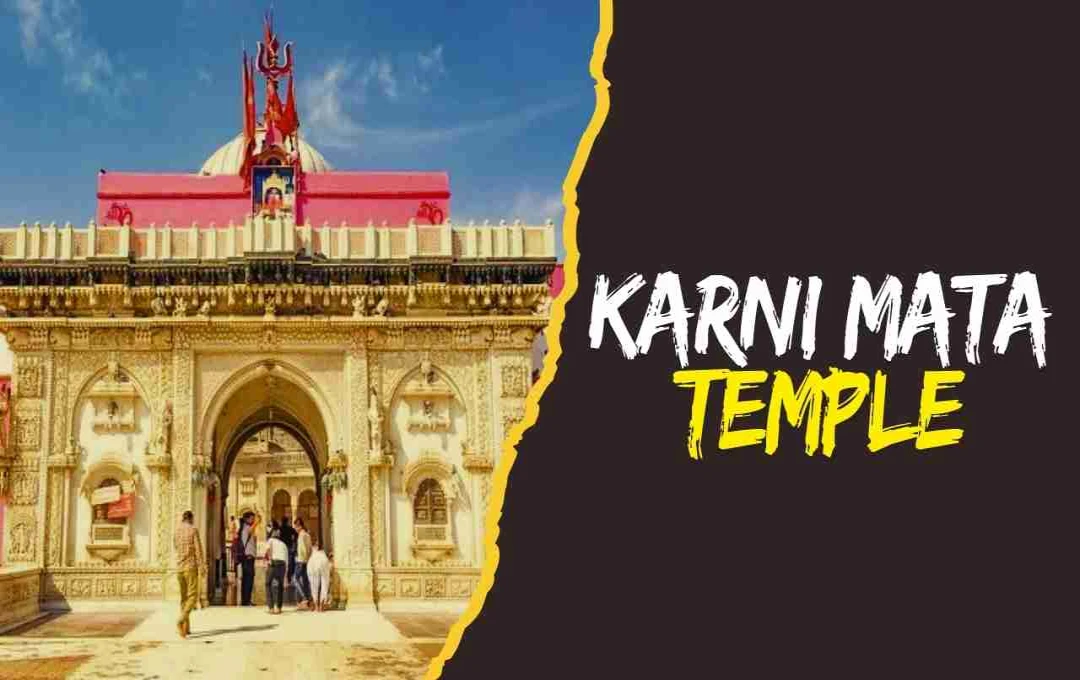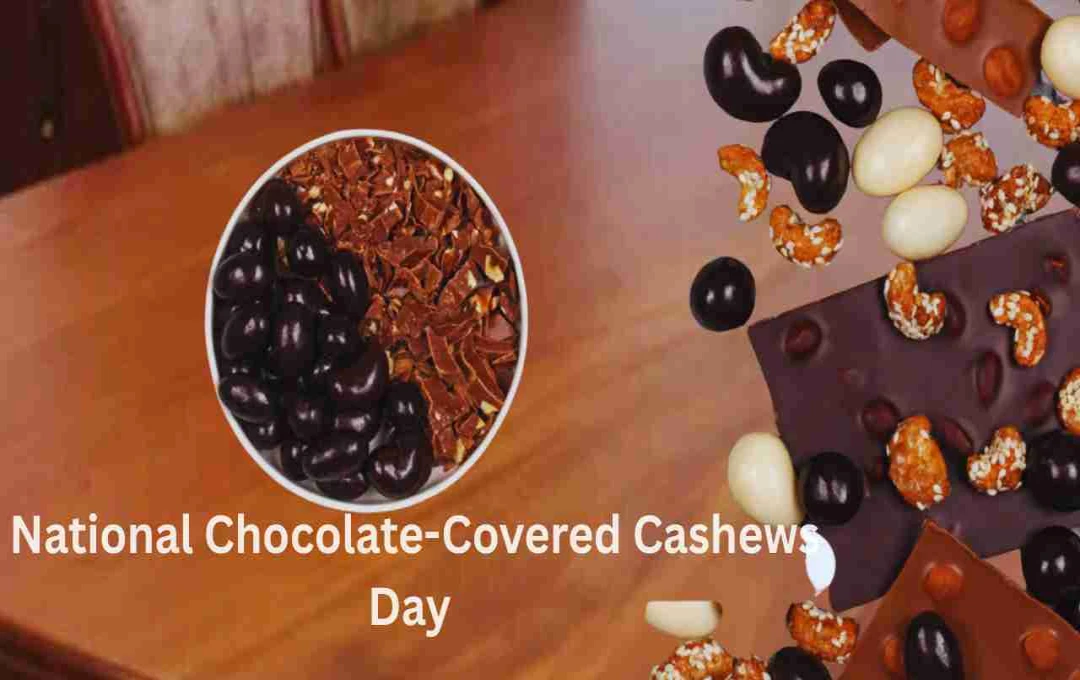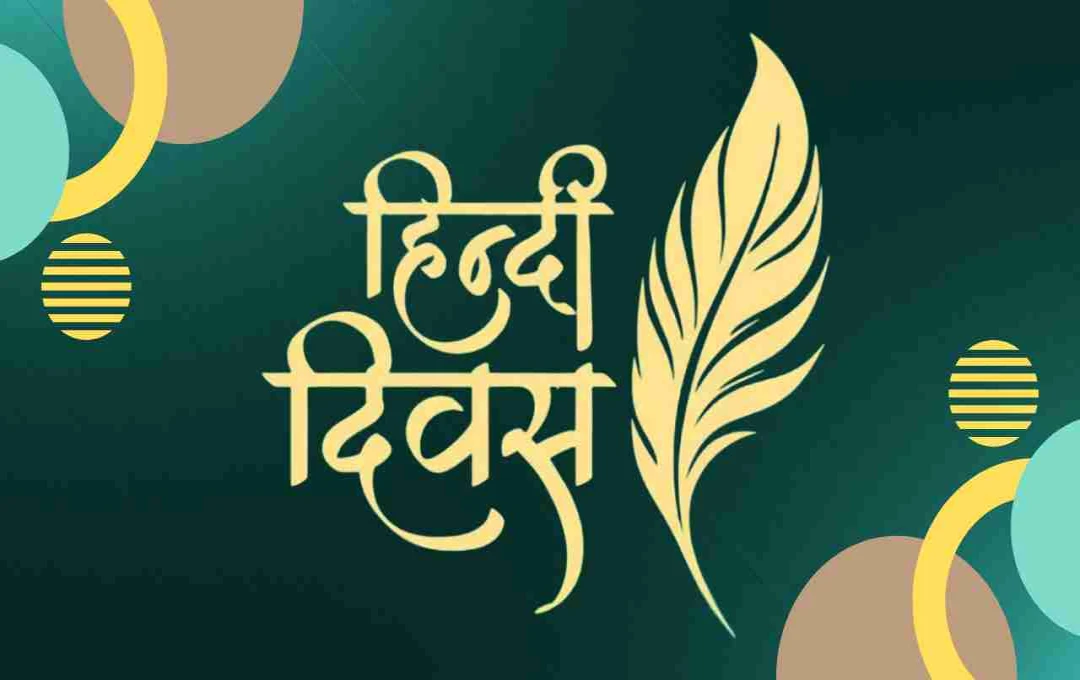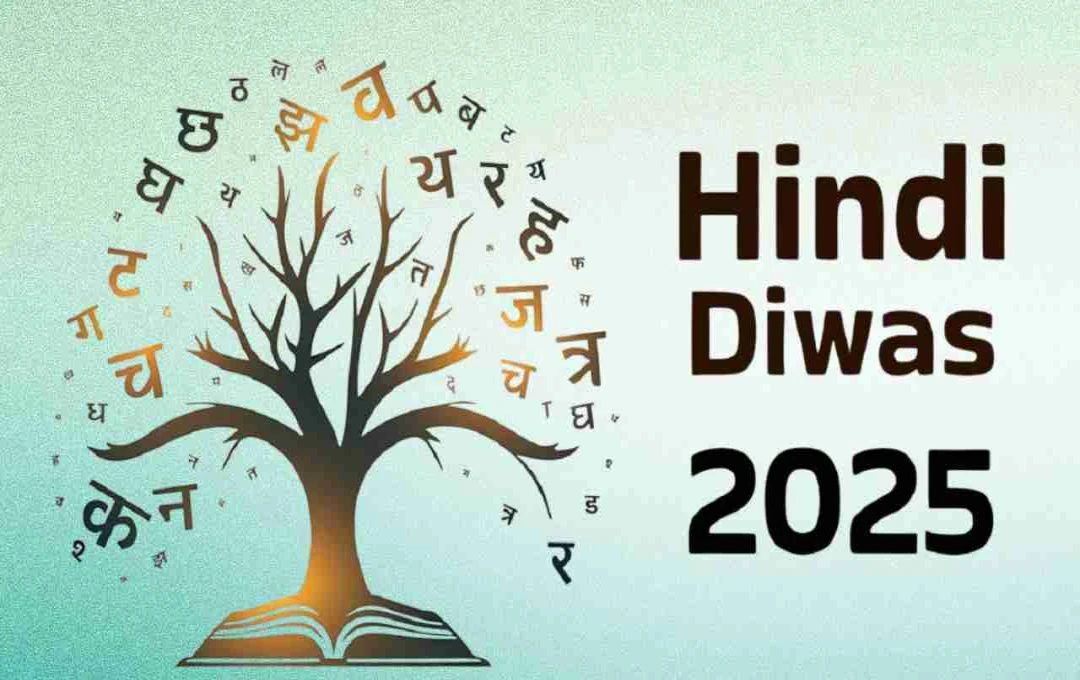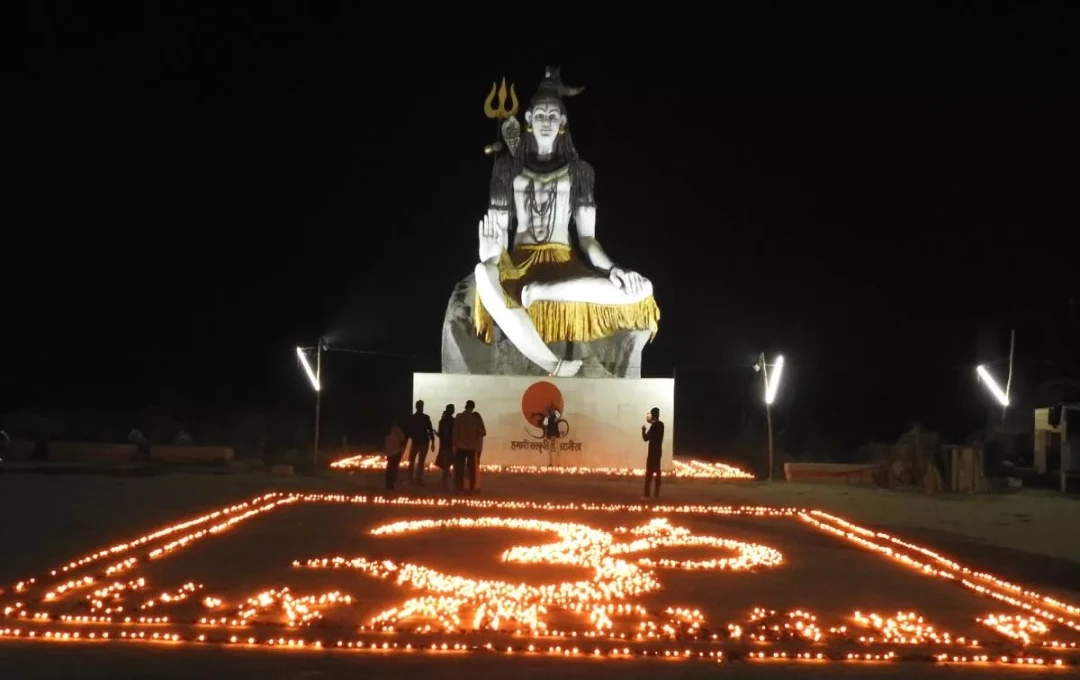Located in Deshnok, Bikaner district of Rajasthan, it is a sacred site of Hinduism. This temple is dedicated to Goddess Karni Mata and is world-famous for its Kabba rats, which offer a miraculous experience to devotees.
Karni Mata Temple: Situated in Deshnok, Bikaner district of Rajasthan, India, it is one of the prominent and most sacred temples of Hinduism. This temple is dedicated to Goddess Karni Mata, who is also known by her followers as Karni ji Maharaj, Dadhaali Dokri, and Karni Mata. According to Hindu belief, Karni Mata is considered a symbol of power, and her temple is a wonderful center of faith and devotion in Rajasthan. The most significant of the temple's unique aspects are its Kabba rats, which devotees consider sacred and are provided complete protection within the temple. This temple is renowned throughout India for its unique religious traditions, history, and miracles.
Birth and Early Life of Karni Mata
Karni Mata was born on October 2, 1387, in the Charan community. She was also known as Riddhi Baisa. Karni Mata's life was an epitome of austerity, devotion, and social service. She was born in the village of Suwap, located approximately 20 miles southeast of Phalodi. Karni Mata performed many miraculous deeds throughout her life and spread the message of religion and spirituality in society.
Karni Mata was married to Depa Ji, the son of Kelu Ji of the Rohadiya clan. Although the marriage was conducted solely for social and traditional reasons, Karni Mata decided to remain celibate throughout her life. She viewed her husband as a friend and guide for life, while she dedicated her own life to devotion and spiritual practice. During her lifetime, Karni Mata performed numerous miracles, including protecting devotees during sea storms and battling Dharmaraj, the god of death.
Karni Mata and the Founding of Bikaner
Karni Mata maintained close ties with the royal families of Rajasthan, particularly the Maharajas of Bikaner and Jodhpur. During Rao Jodha's reign, she laid the foundation stone of Mehrangarh Fort and, at the request of Rao Bika, oversaw the construction of the Bikaner fort. She provided guidance to the royal families and helped resolve many political and social disputes. Her influence was such that both the royal family and the populace worshipped her as an avatar of Goddess Hinglaj.
Karni Mata imparted moral, religious, and spiritual teachings to her followers and devotees. Under her guidance, many social and religious reforms took place in Rajasthan, and she propagated the message of unity and cooperation in society.
Miracles of Karni Mata
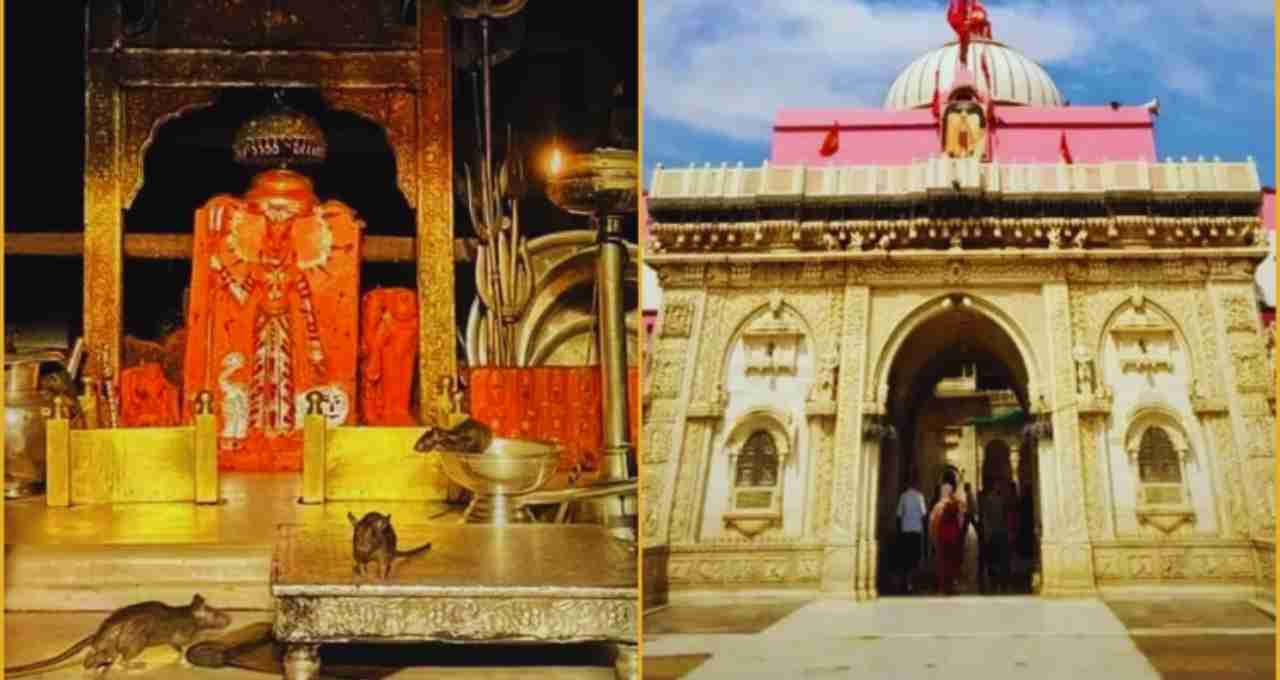
Tales of Karni Mata's miraculous deeds are prevalent from her lifetime. It is said that she safely guided a Gujarati merchant stranded in a sea storm. The story of her son Lakhan's death and resurrection continues to foster faith and devotion among devotees. The recognition of Karni Mata's compassion and power was so great that her devotees believed that those touched by her remained safe and prosperous.
Karni Mata established religious and moral values in society. She showed her followers the path of religion, devotion, and austerity. Her life and miracles continue to be a source of inspiration for devotees even today.
Karni Mata Temple and its Key Sites
Karni Mata temples are established at several locations in Rajasthan. The establishment of these temples is dedicated to Karni Mata's life, her miracles, and her religious contributions. Their key sites are as follows:
- Deshnok Temple
The Karni Mata Temple in Deshnok is the most famous and is also known as the Temple of Rats. Thousands of rats here are considered sacred, and devotees express their faith by observing them. The main pavilion and sanctum sanctorum of the temple are built from yellow marble from Jaisalmer and were constructed by Bavaliya Suthar. The temple roof features a structure of the Jala tree, and no mortar was used for the Kabba. Maharaja Ganga Singh renovated the temple and gave it its current form. - Nehdi Ji Temple
The Nehdi Ji Temple was a primary site of Karni Mata after arriving from Satika. It was revived through the process of churning a dry wood (churning curd). The temple houses Karni Mata's sandals and symbolic idols. - Tejmada Rai Temple
This temple is dedicated to Goddess Avad Ji and is located at the same place where Karni Mata displayed her power during her confrontation with Rao Kanha. The actual karand and idol of Avad Ji are still present in the temple, and devotees worship them. - Suwap Temple
Suwap is the birthplace of Karni Mata, and her grand temple is located here. This temple is 113 km away from Jodhpur. Here, there is also a temple of Avad Mata, built by Karni Mata herself, which she constructed with her own hands. This temple is a direct symbol of Karni Mata's life and austerities. - Mathania Temple
The temple in Mathania was built by Amarji Barath. Karni Mata had installed her sandals here, which are still worshipped by devotees. The history of Mathania runs parallel to the foundation of Mehrangarh Fort. - Udaipur Temple
In Udaipur, the Shri Manishapoorna Karni Mata Temple is located on the Machala hills near Pandit Deendayal Upadhyay Park. This temple was built between 1620-1628 by Maharana Karan Singh. The temple remained deserted for a long time but was reconstructed in 1997. - Alwar and Khurd Temples
In Alwar, the Karni Mata Temple is situated in the heart of the city, near Sagar Palace and Bala Quila. The temple in Khurd was built by order of Maharaja Ganga Singh Ji of Bikaner.
Karni Mata and Kabba Rats
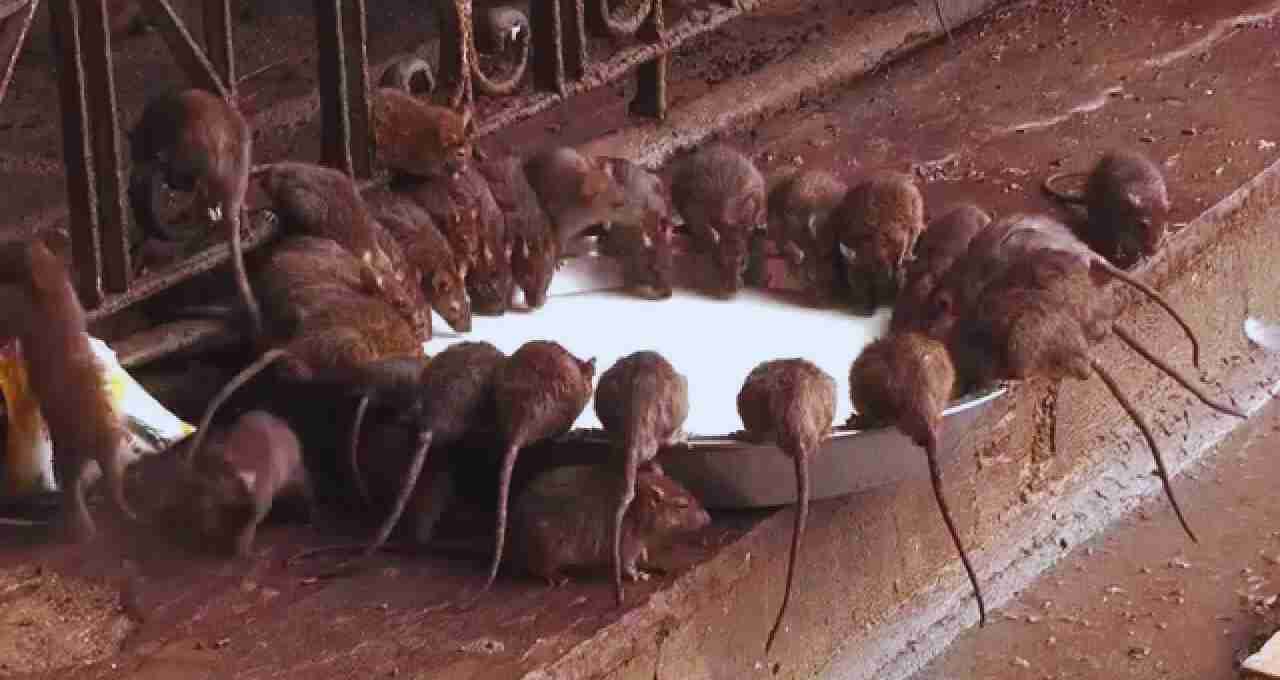
The Deshnok Temple is considered famous for its Kabba rats. Karni Mata had stated that her descendants would be reborn as rats after death, and it is the duty of devotees to protect them. The Kabba rats make this temple unique and unparalleled worldwide. Devotees believe they receive blessings by seeing these rats.
Shri Karni Mata Temple Trust
The Karni Mata Temple Trust is managed by the members of the Depavat family. The trust comprises six members, of whom four hereditary members—Punya Raj, Nagaraj (Narsingh), Siddhraj, and Lakshya Raj (Lakhan)—are selected. All members collectively elect the Chairman of the Trust, who oversees the temple's operation, worship arrangements, and religious activities. The trust plays an active role in the temple's maintenance, renovation, and social welfare.
The Karni Mata Temple is not merely a religious site but a symbol of devotion, power, and social service. Karni Mata's life and her miracles continue to be a source of inspiration for devotees. Her temples and the tradition of Kabba rats convey messages of spiritual consciousness, moral values, and faith.
